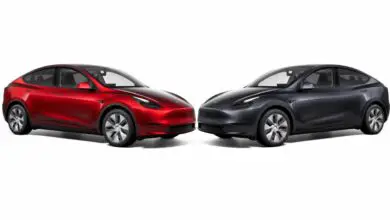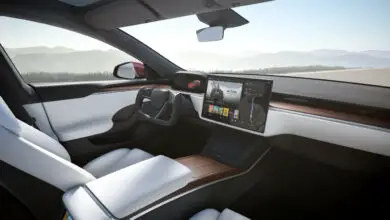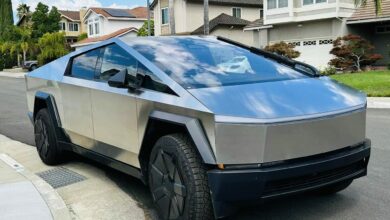Rivian R1T Towing Challenges Highlight Electric Pickup Sector’s Hurdles
A Deep Dive into Towing with Rivian R1T: Range, Charging, and Future Prospects in the EV Pickup Industry

The electric pickup sector is growing, and towing ability is at the forefront of many consumer minds. In recent weeks, Motortrend writer Derek Powell used a Rivian R1T to tow trailers on two different trips, later sharing his thoughts on both experiences.
Powell used Motortrend‘s own 2022 Rivian R1T Launch Edition to tow a Porsche Cayman GT4 from Los Angeles to the Buttonwillow Raceway Park in the Central Valley. He again used the R1T’s towing ability for a trip to the San Francisco Bay Area to purchase a vehicle, both of which caused frustrations.
The trip to Buttonwillow entailed a 120-mile drive on California’s Interstate 5 from Powell’s home in LA to the race track with a full charge, climbing in elevation to a total of 4,144 feet. The car and trailer alone were roughly 3,800 pounds, Powell says, adding that he reached the track with about 32 percent charge remaining.
While some of the garages in the Buttonwillow area had NEMA 14-50 plugs, Powell says he was unable to use the portable Rivian charger he had because most of the plugs weren’t grounded correctly.
He was also nervous about unreliable DC fast-charging stations along the way back, based on past experiences. What’s more, Powell notes how few charging stations have pull-through charging lanes, which make it possible to charge without having to detach your trailer.
Plugging into one of the RV spots at Buttonwillow (though he was almost disallowed from doing so), Powell charged the R1T up to 89 percent before leaving, though he would have preferred a full charge. He arrived back home with just 12 percent remaining, cutting it a little close.
Between both trips, Powell lauds the regenerative braking that helped preserve the battery at crucial times and the electric torque that worked so well on hills. Still, his trip using the R1T and a trailer to drive from Los Angeles to pick up a Fiat 500e in Walnut Creek, and back, left something to be desired — particularly in the range and charging categories.
In theory, the trip could have ambitiously been plotted for about 10 hours round trip, though it instead ended up taking two full days. From frustrating charge rates at Electrify America stations to the decreased range and charging speeds when towing, Powell says the trailer and car added a “whole extra level of strategy.”
The account comes ahead of the release of the long-awaited Tesla Cybertruck, which was spotted towing a trailer earlier this week. The Cybertruck is expected to begin deliveries this year, with mass production starting next year. Recent reports from a supplier suggested that the Cybertruck could be delayed, and Giga Texas paused its assembly line for the futuristic truck earlier this week for upgrades.
In the coming years, Rivian’s vehicles will also be built with Tesla’s charging port, dubbed the North American Charging Standard (NACS). The charging hardware has been adopted by a number of automakers for future builds, which will give owners of Rivian trucks and other brands access to Tesla’s vast, reliable Supercharger network.
A follow-up in an online forum following the announcement showed that Rivian owners strongly supported the company adopting Tesla’s charging equipment.



